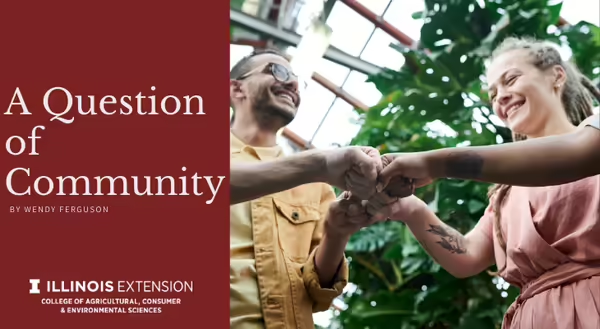
“When we try to pick out anything by itself, we find it hitched to everything else in the universe.” John Muir
What do you think of when you hear the word “community”? Do you picture the town or city where you live? Your neighborhood? A group of people? Did any of you include plants or animals in your picture?
The dictionary definition is “a group of people living in the same place or having a particular characteristic in common”. As someone who trained in community ecology, I look at community in a slightly different way.
Community ecologists study communities (obviously) but they define community as “an assemblage of interacting populations of the species living within a particular area or habitat”. The key words being “populations of species” meaning not just people.
So why is the distinction important? It matters because the health and resiliency of our communities depends on our recognition and understanding of all the different ways community members interact with one another. Our definition of what “community is” can (and I believe should) be broadened to include the more than human world.
Aldo Leopold in his book, A Sand County Almanac captured this idea of community and started the discussion with his concept of a “land ethic”. Taking the idea that community is more than just human beings. It is an understanding that people and the land are intimately intertwined: care for people cannot be separated from care for the land.
Our current pandemic is a reminder that we are intertwined with the other species that inhabit our share space. But these interactions and connections do not have to be negative. Science tells us that these connections with the more than human world help our mental and physical well-being.
Mary Berry, director of the Berry Center and daughter of author Wendell Berry, urges people to live in a world of “affection and membership,” a lifestyle she and her father believe stems from a strong sense of place and belonging. Which begins by learning about a place in its entirety including its community members both human and more than human alike.
This year’s events have given us the perfect opportunity to really explore and discuss what community is and could be. I urge all of us to take advantage of the occasion. This month, I encourage you to watch for these interactions, learn about them and the place that you call home. Aldo Leopold thought the development of a land ethic was both an intellectual and emotional process. Each of us are members of the community that will shape the evolution of that ethic. Let us engage in a thoughtful dialog that makes room for many different perspectives on the relationship between people and land.